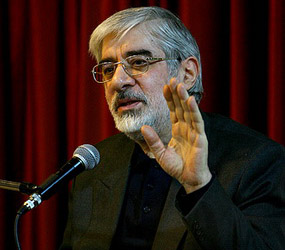
The University of North Carolina, located in Chapel Hill, is a wondrous place, an oasis of liberalism within a desert of reaction. Only here, since it is hunting season, might a visitor be treated with a juxtaposition between higher education and wild turkeys.
My own hunting has been less successful. I have been here for ten days and have yet to meet or track down a Republican.
I’m pretty sure I saw one on my ride from the airport, with the clue lying in the “Impeach Obama” sticker on the driver’s truck. Beyond that, however, it seems that this is an enclave free from members of the Grand Old Party. I am told that at a faculty meeting at the university last year, the subject of diversity arose.
“We have too many white men,” said the first speaker. “This needs to be addressed.”
“I agree,” came a response, “let’s find another Republican.”
This doesn't necessary mean, however, that Chapel Hill is a bastion of liberalism. There are Democrats and then there are Southern Democrats, and the twain do not meet with any comfort. A Southern Democrat is not necessarily a Republican in other clothes, but both on historical background --- tread carefully when approaching the story of segregation and civil rights --- and in contemporary context, there are tensions on political, economic, and social issues.
This complexity is overshadowed now on the national scene by two sweeping stories. The first, the Tea Party, should not be an issue at all. This is a collection, predominantly of late middle-aged, middle-class, comfortably well-off folks don’t want to pay anything for those Americans less fortunate than them. They are able to make sufficient noise to give certain areas of the media the opportunity to blow the alleged importance of the TP out of all proportion.
At first sight, the Tea Partiers could be mistaken for supporters of Ross Perot, the businessman who ran a third-party Presidential campaign in 1992. In that time of economic distress in the 1990s, a distrust of Washington gave rise to a desire amongst a minority to support an "independent" for President and shake up the established order.
So, where are the differences? First, Perot supporters came from both sides of the political aisle. Tea Partiers are from the right-wing of the Republican Party, screaming their love for Sarah Palin when she says, “We’ll keep the guns and our religion and they can have the rest.” Second, Tea Party activists seem to be older and wealthier than Perot fans. Third, TP ideology is focused on taxes and "Big Government". Perot’s supporters had much wider issues of concern.
The second big issue is President Obama’s next Supreme Court pick. Within a day of Justice John Paul Stevens’ decision to retire, Congressional Republicans threatened a filibuster if Obama did not choose a middle-of-the-roader who accorded with Republican thinking.
Presently, the court is pro-business and leans to the right. Surely, the Court needs a "left" thinker, capable of articulating the views of ordinary Americans and who understands how court decisions affect ordinary lives. But I am even more concerned, given the Republican stance, over their fear of a differing point of view on the Court? Why is diversity suddenly a dirty word?
 Monday, April 26, 2010 at 9:14
Monday, April 26, 2010 at 9:14  Radio Zamaneh adds more English translations of Mir Hossein Mousavi's speech to war veterans on Sunday. The themes, put forth in a series of Mousavi declarations over the last week, are now well-established:
Radio Zamaneh adds more English translations of Mir Hossein Mousavi's speech to war veterans on Sunday. The themes, put forth in a series of Mousavi declarations over the last week, are now well-established: Iran,
Iran,  Iran Elections 2009,
Iran Elections 2009,  Islam,
Islam,  Mir Hossein Mousavi in
Mir Hossein Mousavi in  Middle East & Iran
Middle East & Iran  Iran,
Iran,  Iran Elections 2009,
Iran Elections 2009,  Islam,
Islam,  Mir Hossein Mousavi in
Mir Hossein Mousavi in  Middle East & Iran
Middle East & Iran 



